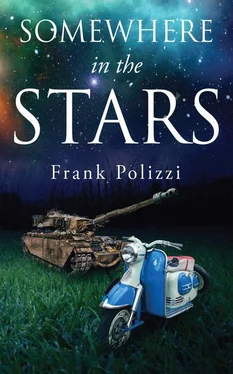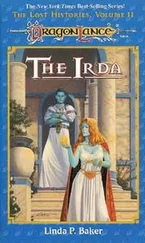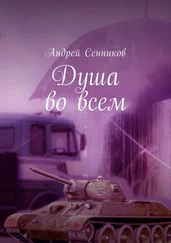Al’s mother wrote:
Dear Al,
The whole family misses you so much. Little Pete has been oiling your leather glove so that it doesn’t dry up. He wants you to teach him how to play as soon as you get back. I think your Irish father is turning Italian the way he is so worried about your not getting proper Italian food…
Nathan’s father wrote:
My Dear Son,
I hope that things have not been too harsh for you. Remember that Hitler wants to destroy our people and anyone else who is not Aryan, so you’re doing a righteous thing. Do not let the bigots get the best of you. Watch out for your sergeant, as he will try to provoke you until you’re thrown into the guardhouse. He will get his comeuppance some day…
With love from everyone
Nick moved much further away from the barracks where brush trees clustered and black-capped vireos nested. While he meandered, Nick first read the letter from his father out of respect, then skimmed his mother’s note so he could get to Deborah’s. He sat down and leaned his back on the tallest tree, smelling the paper a moment, and gingerly opened the letter.
Deborah wrote:
Dear Nicky,
I already feel like it’s years since we first saw each other. I was wondering why I hadn’t heard from you. Nathan says he’s staying out of this, so he hasn’t been much help. I try to respect my parents who have sacrificed so much for me, but sometimes it’s very hard. I am graduating early and plan to go to San Francisco State College in the spring to keep my mind off things. No matter what my parents say, I will never forget you. I just want you to come back alive…
Take care, mi amor .
Nick leaned his head on a tree trunk to take in everything he had read. The line about Deborah not hearing from him was disturbing, but he shrugged it off as an army screw up. Beat from all the training, he dozed off and at first Nick thought he was dreaming but soon heard a vireo singing zhrrree right above his head. The memory of Deborah and him at the San Francisco Botanical Garden burst alive and he imagined hearing the black phoebe again and seeing all those bright colors right in front of him. He put the letter in his lap and the hues around him transitioned from green to brown to black after the vireo flew away.
The next day Nick remained in a sour mood, as he shifted his thoughts to his father’s predicament. He reread his father’s letters, some of which dated as far back as the winter, the ones he had saved from North Beach. Nick poured through the bundle filled with censored lines that had been deemed suspicious and forwarded to the intelligence unit at Camp McAlester. If his father used any Italian words or made any reference to Italy, even negative comments about his native country, they would be blackened or scissored out. When Nick was a child, his father would draw cartoons about Giufà, the village fool, in the tales his mother read to him. His father included some new ones in his letters, so his son would think things were normal. Every cartoon was deleted, as there was a strict ban on all drawings, no matter what the content. Nick tried to decipher the reasons for Gaetano’s internment and struggled to imagine what was missing in all those deletions and what was really meant in his father’s own words.
* * *
Nick’s father spent many cold evenings in primitive barracks, battered by high winds and snowstorms in a remote part of Montana. Fort Missoula had been painted on one of the buildings over a slant of the roof in big white letters, as if they needed to be reminded of the camp’s name. Papà would lie on his cot staring at the ceiling and, when he couldn’t sleep, he would get up and look through the dust-coated window at the mountains. He had met an old fisherman friend from North Beach, who like himself had been a member of the Ex-Combattenti, the Federation of Italian War Veterans in America. Marco Randazzo and Gaetano fought during World War I, when America and Italy were allies. Now they were reunited against their will in an internment camp, even though they had no use for the fascists.
In the evening after supper, the two detainees played briscula or scopa because it was a link to their italianitá , now feeling so far removed from the extended families and their neighborhood with all its wonderful food shops, operated by paesani who used to speak their language openly.
“Gaetano, I have trumped you again.” Marco, who always wore a white cap, slapped an ace down on the hard wood table. “You keep on losing in Briscula . Come vai ?”
“ Mi dispiace ! I can’t concentrate. All I do is worry like an old woman in a black dress.”
“You must stay calma. ”
“But what about mia famigghia? What I have done to deserve such a fate? I have been humiliated in front of my family, the whole neighborhood. They call us enemy aliens!”
“So what are we to the Amerigani ? I have behaved myself from the first day I stepped off the boat. We fought together with the Amerigani in World War I. Now I am a traitor. Has the FBI ever read my newspaper articles attacking Mussolini? No! Nenti! Even the great American magazine, Time, had Mussolini on the cover. Quella fascista buffa!”
“What can we do, Marco?”
He shuffled the cards. “Have you heard from your son?”
“ Si , I got a letter yesterday. Nick joined the Army. He’s going in right after graduation in early June. He’s in a hurry to ride in a tank.”
“Well, at least he won’t march for miles in the mud. Remember stumbling up the slippery edges in mountains on the Isonzo Front.” Marco stacked the deck on the table.
“How could anyone forget the fear of being blown up or frozen to death? So Nicolo tella me all the time, ‘No worry, Papà.’ I’ll send money to Mamma every month. She okay, Pop. That’s what he say to me.”
“He’s a good son, Gaetano.”
“Before I go to sleep each night, I wonder what will happen to all of us.”
“Some people pray to their favorite saints, but as for me, it does no good. Our fate is all in the cards.” Marco tapped the deck. “It is like the lifeline across your palm.” He showed his palm and lined his index finger across it. Gaetano’s crossed himself, while Marco chuckled. “Don’t listen to me. I am an old fool. Do you want to play some scopa?”
“No, grazie. I want to turn in now. Bona notte, Marco.”
“Bona notte, miu amicu .”
Papà sat on the side of his Army steel cot with an Army brown blanket dangling at the edge. He pulled on the string of his reading lamp, just a bare bulb hanging overhead. He had collected a stack of letters, one from Lucia and a separate pile for Nick, which he placed next to a statue of St. Thomas the Apostle, his patron saint. He took his scuffed brown work boots off and put black leather slippers on, a new pair that his wife had sent after her first visit. He got up to look out the window and could see the tower lights shining off the barbed wire that encircled the camp. The guards had their weapons on the ready so no aliens considered escaping. Gaetano could make out the outline of magnificent mountains in the distance, but he was trapped in this camp, over a thousand miles from his entire family.
The next morning he ate breakfast in the large mess hall. The internees sat together on wooden benches at long tables lined up in rows. The food was edible but never bonu , and for lunch and dinner, never a drop of red wine, a drink that always accompanied dinner at home. Gaetano thought of the Sicilian proverb, ‘Bonu vinu fa bonu sangu’ —‘Good wine makes good blood.’ There was something missing to wash down what passed for three square meals. As usual Gaetano sat next to his friend, Marco, both complaining about the food. The white bread was puffy, the oatmeal mush thick like cement, the vegetables canned and the coffee so bitter, no amount of sugar or milk could mute its aftertaste, not even lemon. Gaetano never craved a second cup of java. They usually ate in silence and only spoke Sicilian in private because they never knew who might be listening, and they did not want to be interrogated, having no information the FBI would be interested in anyway.
Читать дальше












